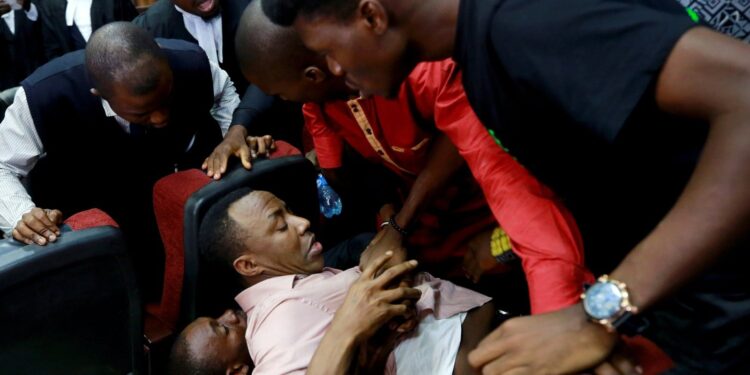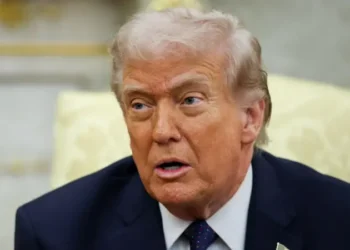The Federal High Court sitting in Abuja has fixed October 29, 2025, for the hearing of the suit filed by the Nigeria Police Force (NPF) against Omoyele Sowore and other attendees of the #FreeNnamdiKanuNow protest held last Monday.
The suit, originally scheduled for October 20 for the respondents in the ex parte motion to show cause why the interim order made by the court should be vacated, could not proceed.
The hearing was stalled as a result of the protest, which was held on the same day, crippling the court activities at the Federal High Court in Abuja.
Justice Mohammed Umar had issued an interim order restraining Sowore and others from protesting for the release of Nnamdi Kanu in some sensitive areas in Abuja.
Justice Umar barred the protesters from demonstrating around the Aso Rock Villa, National Assembly, Force Headquarters, Court of Appeal, Eagle Square and Shehu Shagari Way, pending the hearing of the motion on notice.
The judge also made an order of abridgement of time “within which the respondents will respond to the application on notice to cause the ex-parte order be set aside on Monday, the 20th of October, 2025 at 9.00am,” before adjourning until Oct. 20 for hearing of the motion on notice.
The order followed the ex parte motion moved by the police counsel,Wisdom Madaki, on behalf of the Federal Republic of Nigeria (FRN), last week.
The police, in the ex parte motion, marked: FHC/ABJ/CS/2202/2025, had sued Sowore, Sahara Reporters Ltd, and Sahara Reporters’ Media Foundation as 1st to 3rd respondents.
The force also joined the Take It Back Movement (TIB), for the Transformation of Nigeria, Or Any Form of Organization or Person (s) acting with Either Express or Implied Instruction, or Any Other Organization or group with a similar intention; and Unknown Persons as the 4th to 5th respondents, respectively.
In the affidavit supporting the ex parte motion, Bassey Ibithan, a police officer attached to the Directorate of Legal Services at Force Headquarters, Abuja, averred that if not granted, the protest might threaten national security.
















